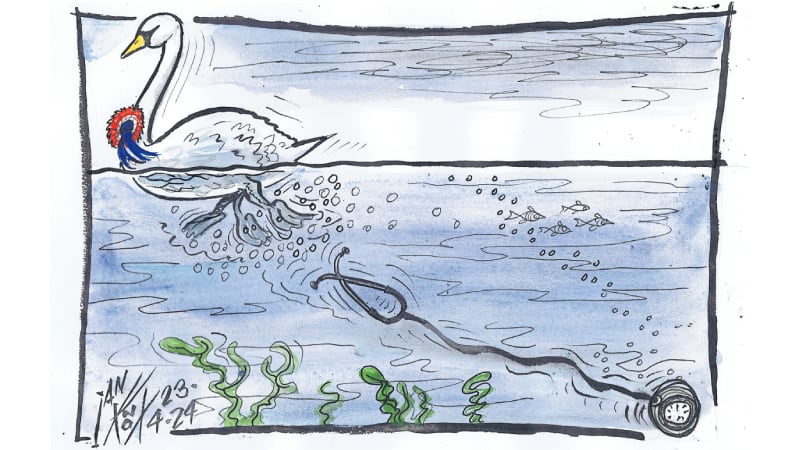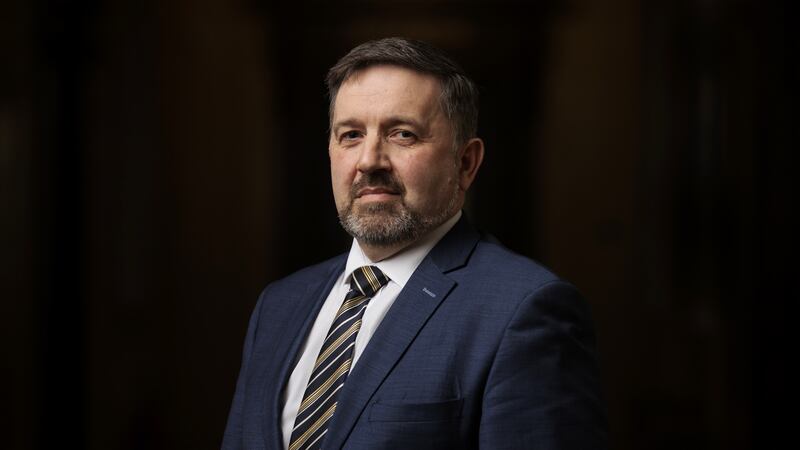Patrick Murphy observed that, “Protestant churches have generally not been involved in widespread child abuse and its concealment” (May 25). Their “moral authority” and “reputation remains largely intact”. Bible-based prohibition of abortion and equal marriage therefore plays strongly within unionist politics.
I can’t say if abuse occurred to the same extent in Protestant Churches or church-influenced institutions as in the Catholic Church. But abuse and its concealment did occur. We are ignorant of it because down south official Ireland and its media tended to ignore abuse in Protestant ethos institutions.
The Residential Institutions Redress Board paid compensation worth €1.5bn to victims of both RC and Protestant institutions. It produced no statistics on how many came from each type of institution or how much compensation on average was paid per institution. The RIRB refused to enlighten us as to how much abuse was compensated for in Protestant ethos institutions.
The separate Commission to investigate Child Abuse, the Ryan Commission, reported in 2009. It was supposed to provide a social and historical analysis. About 1,500 former residents self-selected to talk to Ryan, but Ryan refused also to state how many per institution. Few, it seems, were Protestant. One former resident, compensated by the RIRB, said he thought talking to Ryan a “Catholic thing”. This narrative became self-reinforcing and leads to Patrick Murphy’s observations. Ryan selected 20 institutions as case studies, all Catholic. The reason is not because Ryan deliberately excluded Protestant institutions, but simply because few, if any, Protestants who were in them spoke to Ryan.
The RIRB refused to provide information on abuse in Protestant institutions. The Ryan Commission could not because of selection bias. It suited southern governments to keep the focus on the Catholic Church. The state’s ultimate responsibility for abuse in licensed institutions was thereby obscured. Its transition from deference to defiance must, for this reason, be seen as partly cynical. Protestant abuse victims did not suit its narrative.
The political point Patrick Murphy makes is strained. It is simply the case that, independent of Protestant churches, religion has exercised a stronger role in unionist politics. Within the Catholic Church, clergy traditionally exercised too much influence over their flock. In Protestant churches in the north, the problem is the other way around. Clergy tip toe around the fanatical political sensibilities of some parishioners, who link their political and religious identity.
Catholics, through a secular republican sensibility, tend increasingly to resent priests in politics. Attempts to impose Catholic morality ultimately backfired. Catholics became fed up being bossed about. Today, on abortion and equal marriage, the DUP is the Pope’s party. This alliance, between supporters of an infallible Pontiff and an unerring book, was last seen during the reign of King William of Orange.
(Dr) NIALL MEEHAN
Dublin
Election slump leaves Sinn Féin at crossroads
Some hard thinking, and hard choices, await Mary Lou McDonald and Sinn Féin. The party will be in trouble at the next general election unless it learns lessons very quickly from its local and European elections slump.
In the south’s major cities, the urban areas were intended to be the foundation for Sinn Féin’s entry into government following a general election. This failed miserably. It could also be put down to a low voter turnout in working-class areas and a higher turnout in more well-off districts. However, a ‘no early’ general election will suit Sinn Féin to allow the party to get back on course. I think Sinn Féin are seen by younger voters as no longer revolutionary but part of the establishment. The older voters may see policies not genuine and only opportunistic. The youth who once canvassed for Sinn Féin are now drifting away to the Greens, PBP and smaller independence parties. Most of those who now canvass for Sinn Féin are middle-aged and older.
In the Dáil they were seen as always sniping at the government benches in an incoherent manner, rather than challenging them in a more constructive manner.
In the north of Ireland Sinn Féin need to rethink their strategy for a border poll to be effective. But more important, and Newton Emerson wrote about it (May 30), ‘a new plan for government for the north of Ireland assembly’. I agree with some of what he wrote. The two-party coalition is causing deadlock on issues that are annoying people inside and outside of the north.
The party is at a crossroads. It’s no time to go head hunting. With good collective leadership Sinn Féin are more than capable of steadying themselves and weathering the circumstances and to continue on their road to ‘Build an Ireland of equals’
JAMES G BARRY
Dublin 6
Important area of focus
I am pleased that Belfast Lord Mayor John Finucane has just identified “climate change” as an important area of focus for his year as first citizen. During John’s inaugural speech climate breakdown wasn’t mentioned. I urged the new lord mayor to prioritise it. I am delighted he and his party are listening.
It’s great that Sinn Féin wants to take forward Green Party policies. It’s critical that we make sure that they do it properly.
There is a growing public consciousness of climate breakdown. That was reflected in the recent “green wave” with Green politicians returned en mass across Europe including a resurgence of the Irish Green Party and significant gains in Britain.
I’m not precious about other parties furthering our policies if progress is to be made. What’s precious is our planet. I say to Sinn Féin and indeed any party taking up the cause of climate breakdown – welcome on board, dust down your seat, we’ve been waiting for you.
However, talking about “climate change” is not a cheap ride to popular support. There are four Green councillors on Belfast City Council committed to ensuring that we recognise climate breakdown as the most significant challenge facing our city and we have the policies to deal with it.
These means tough choices and radical departures from the current economic orthodoxy.
Cllr MALACHAI O'HARA
Green Party, Belfast
Uncomfortable terminology
In reference to Val Morgan (May 24), the Collins dictionary definition of the word “murder” is the “unlawful intentional killing of a human being”.British army personnel have without doubt, been involved in murders in Ireland. The courts system has presently charged some members with murder and attempted murder yet the media seem to have a problem with describing such massacres as Ballymurphy and Bloody Sunday as murder. Terminology such as “shot in controversial circumstances” and “killed in disputed circumstances” or simply “died”. This the media are comfortable with. Why is “murdered by terrorists” never ever written or said by the media? I made my mind up a long time ago. These ‘alleged’ terrorists are protected and surrounded by a network of supporters including the British prime minister and her ministry of defence who supply and finance the lawyers to defend these ‘alleged’ terrorists. If that is not disgusting enough now we have the British Parliament tabling a bill to allow terrorists in uniform to murder with impunity. So, in my opinion, the media are not brave enough to call it as it is. Otherwise, the media policy is, the state forces don’t ‘murder’ anyone.
B FOX
Co Down







